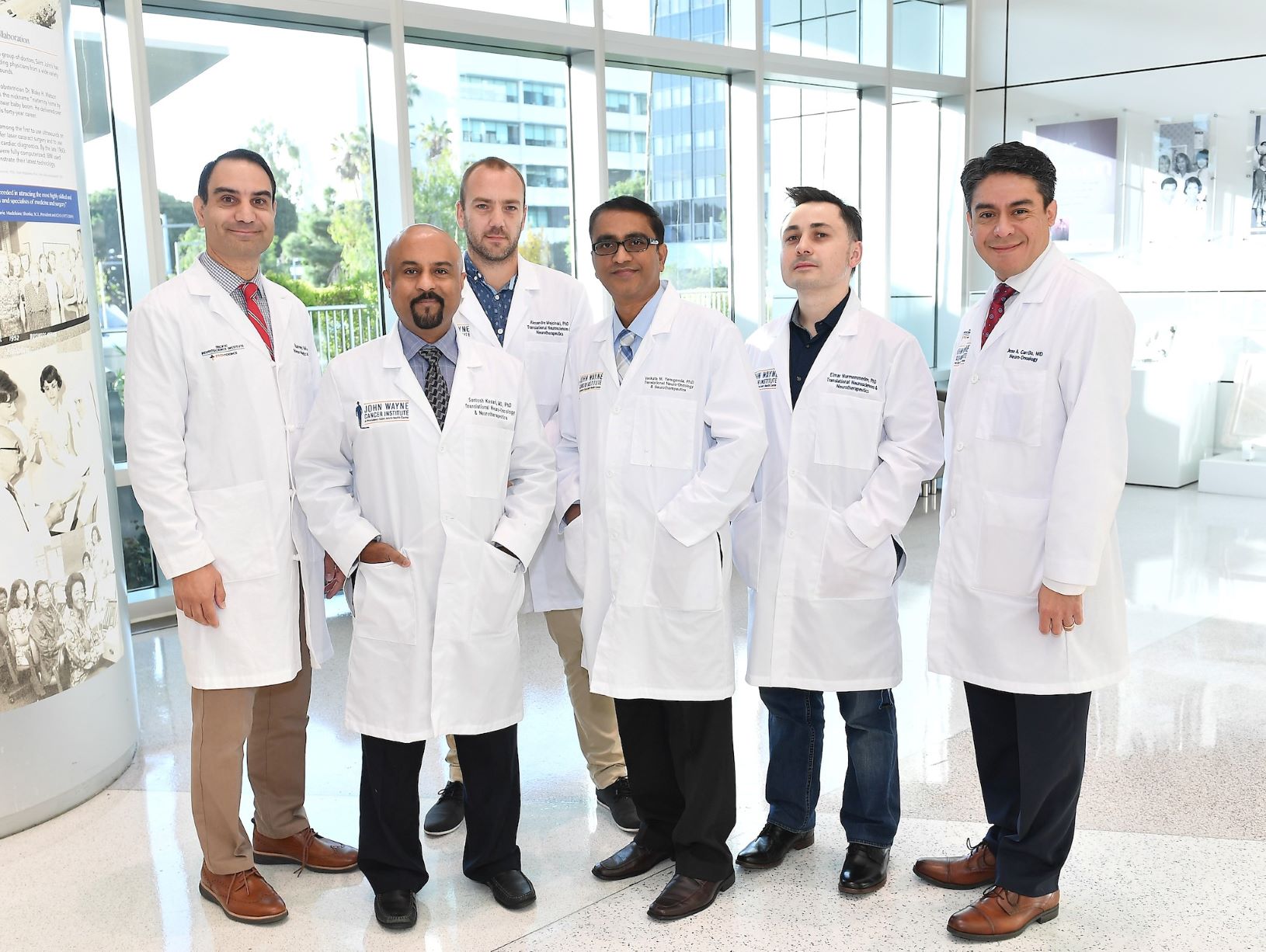
The Translational Neurosciences department at the Saint John’s Cancer Institute is committed to accelerate the development of novel therapies for brain cancers and neurological disorders through innovations in immunotherapy and precision medicine. Under the leadership of world-renowned neuroscientist and neuro-oncologist, Dr. Santosh Kesari, M.D., Ph.D., the department is focusing on leading-edge basic and translational research, innovative clinical trials, and comprehensive, personalized treatments to give cancer patients hope for a future.
Dr. Kesari’s driven team of experts are developing and advancing life-changing treatments for patients with brain and skull based tumors and other neurological conditions.
Learn about our featured publications to advance cancer treatments:
- Jeffrey J. Rodvold, Su Xian, Julia Nussbacher, Brian Tsui, T. Cameron Waller, Stephen C. Searles, Alyssa Lew, Pengfei Jiang, Ivan Babic, Natsuko Nomura, Jonathan H. Lin, Santosh Kesari, Hannah Carter & Maurizio Zanetti, have published a new study in Scientific Report, entitled: IRE1α and IGF signaling predict resistance to an endoplasmic reticulum stress-inducing drug in glioblastoma cells. Glioblastoma is notoriously resistant to radiation and chemotherapy. In this publication, they used patient-derived GBM neurosphere lines to show that Insulin Growth Factor signaling (IGF-1) correlated with resistance to therapy. Further validation was done using weighted gene correlation network analysis, CRISPR technology, and analysis of The Cancer Genome Atlas (TCGA) that inhibiting IGF-1 pathway induced cell death. Read the publication to learn how his study highlights a common mechanism of tumor resistance and opportunity to target this in future studies to improve outcomes.
- Her NG, Kesari S, and Nurmemmedov E, have published a new study in Cell Cycle, entitled: Thrombospondin-1 Counteracts the p97 Inhibitor CB-5083 in Colon Carcinoma Cells. This publication demonstrates that Thrombospondin-1 (THBS1) is a CB-5083-upregulated gene that helps confer resistance of HCT116 cells to CB-5083. Learn how their data provides new evidence that THBS1 is important for the susceptibility of cells to p97 inhibition.
- Cheltsov A, Nomura N, Yenugonda VM, Roper J, Mukthavaram R, Jiang P, Her NG, Babic I, Kesari S, and Nurmemmedov E, have published a new study in Scientific Reports, entitled: Allosteric inhibitor of β-catenin selectively targets oncogenic Wnt signaling in colon cancer. This publication presents a novel pharmacologic approach for selective inhibition of β-catenin via targeting a cryptic allosteric modulation site. Learn how their findings may provide a new perspective for therapeutic targeting of β-catenin for many cancers.
Visit our Translational Neurosciences department to view all of our novel research topics.
About the Author
Fariba Ahdoot
Fariba Ahdoot is the Marketing Manager, Website and Digital Strategy, at the Saint John’s Cancer Institute. She interviews the physicians and researchers to provide useful content for patients, caregivers, and the community.

